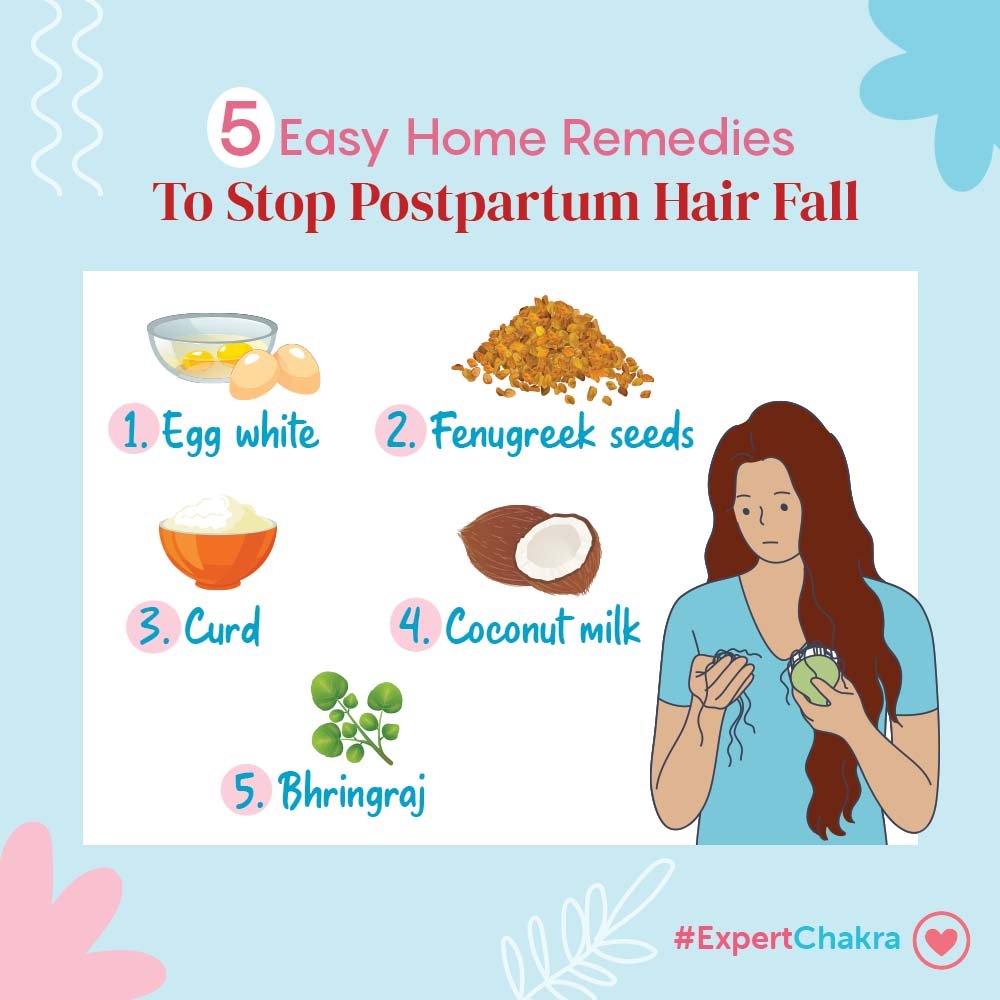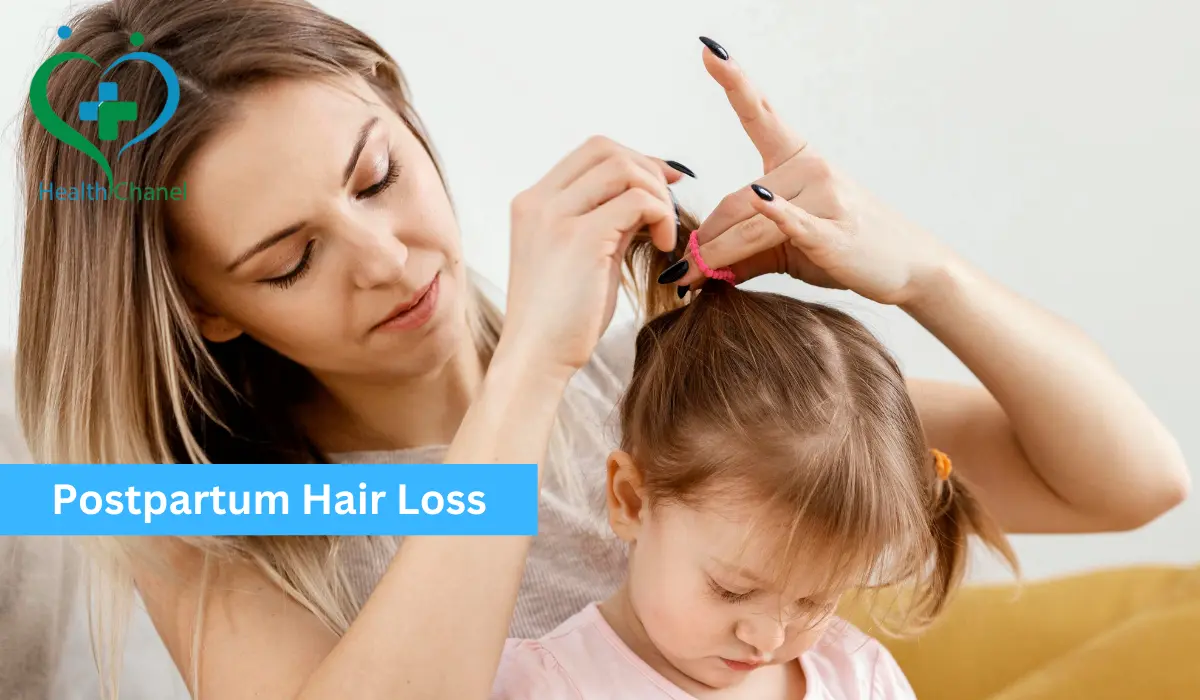Postpartum hair loss is a common and often distressing experience that many new mothers face after giving birth. While it’s completely normal to shed some hair during the postpartum period, the experience can be overwhelming for many women who are also adjusting to the physical and emotional changes that come with motherhood. If you’re wondering, “How long does postpartum hair loss last?” or “What causes postpartum hair loss?” you’re not alone. This article will cover the causes, timeline, and effective home remedies and treatments to help manage and reduce postpartum shedding.
What Causes Postpartum Hair Loss?
After pregnancy, hormonal changes are the main cause of postpartum shedding. During pregnancy, high levels of estrogen prolong the growing phase of the hair cycle, which leads to thicker, fuller hair. However, after childbirth, hormone levels drop, and many hairs that were in the growth phase enter the shedding phase all at once, leading to noticeable hair loss. This can result in thinning hair or the appearance of a postpartum bald spot.
In addition to hormonal shifts, stress from childbirth, sleep deprivation, and the physical demands of caring for a newborn can also contribute to postpartum hair loss. Some women may even experience receding hairline postpartum due to these factors.
How Long Does Postpartum Hair Loss Last?
One of the most common questions new mothers ask is, “How long does postpartum hair loss last?” For most women, postpartum hair loss typically peaks around 3-4 months after childbirth and can last anywhere from 6 months to a year. However, in some cases, postpartum hair loss 2 years later may still occur, particularly if other factors such as thyroid imbalances or nutritional deficiencies are at play. It’s important to note that everyone’s body is different, and recovery timelines can vary.
Postpartum Hair Loss Timeline
To give you a clearer idea of what to expect, here’s a basic timeline of postpartum hair loss:
- First 3-4 months: This is when postpartum shedding tends to peak. You may notice increased hair fall as the hormonal shifts begin to take their toll.
- 6 months after delivery: Hair shedding may begin to slow down. At this stage, many women see some regrowth as their hair cycle starts to stabilize.
- Up to 12 months: For most women, hair growth should return to normal by the end of the first year postpartum. If hair loss continues, it’s a good idea to consult with a healthcare provider.

Postpartum Hair Loss Treatment and Remedies
While postpartum hair loss treatment is generally a waiting game, there are several strategies that can help support hair regrowth and minimize shedding:
1. Postpartum Hair Loss Vitamins
Taking vitamins for postpartum hair loss can be beneficial for restoring hair health. Certain vitamins, such as biotin, vitamin D, and iron, play a significant role in maintaining healthy hair. Postpartum hair loss vitamins can help promote the regrowth of healthy, strong hair. Additionally, incorporating these vitamins into your diet can help address any deficiencies that may be contributing to hair loss.
- Biotin: Known for its role in hair growth, biotin supplements can support the regrowth of your hair follicles.
- Iron: Postpartum iron deficiency is common, especially for women who experienced heavy bleeding during childbirth. Iron supplements can help promote healthy hair growth.
- Vitamin D: Important for hair follicle health, vitamin D supports a healthy hair growth cycle.
2. Best Shampoo for Postpartum Hair Loss
Using the best shampoo for postpartum hair loss can make a noticeable difference in the thickness and volume of your hair. Look for shampoos that contain ingredients like biotin, caffeine, and keratin, which help stimulate hair growth and strengthen existing strands. You might also want to consider using a gentle, sulfate-free shampoo to avoid stripping the scalp of natural oils.
3. Healthy Diet for Hair Growth
Eating a well-balanced diet is essential for hair regrowth. Focus on a diet rich in vitamins, minerals, and healthy fats. Foods like leafy greens, eggs, nuts, and fatty fish are excellent choices for boosting hair health. A good diet for hair growth can support your body’s natural recovery processes and promote a healthy scalp for better hair growth.
4. Stress Management
Managing stress is key to how to stop postpartum hair loss. Stress can exacerbate hair shedding, so practicing relaxation techniques like yoga, deep breathing, or meditation can help you keep your stress levels in check. Taking time for yourself, even if it’s just a few minutes a day, can be beneficial for both your mental health and your hair health.

How to Prevent Postpartum Hair Loss
While how to prevent postpartum hair loss isn’t entirely in your control (since hormonal changes are a major factor), there are steps you can take to support healthy hair growth:
- Avoid tight hairstyles: Tight ponytails or braids can cause traction alopecia, making hair loss worse. Opt for loose styles to prevent strain on your hair.
- Gentle handling: Avoid excessive brushing or tugging on wet hair, as this can lead to breakage.
- Supplements: Talk to your doctor about adding hair-supporting vitamins to your routine.
Conclusion
Postpartum hair loss is a normal part of the recovery process after giving birth, but with the right treatment, support, and patience, you can restore your hair to its former glory. Whether it’s through vitamins for postpartum hair loss, gentle hair care practices, or a balanced diet, there are plenty of options to help you manage post pregnancy hair fall and encourage healthy hair regrowth. Remember, if you’re experiencing persistent hair loss or receding hairline postpartum, it’s always a good idea to consult with a healthcare provider or hair loss specialist to ensure there are no underlying conditions causing the issue.

